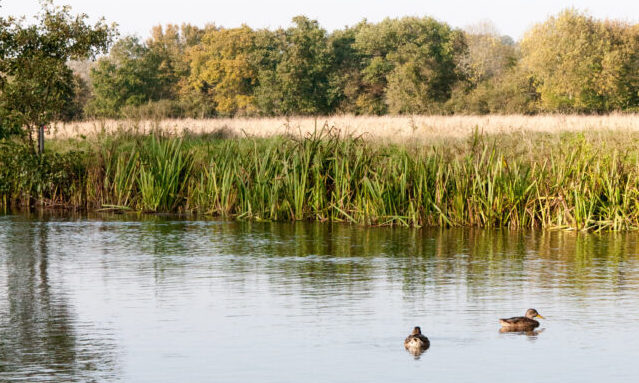
After a few articles about some saltwater considerations in the Ocean State, today we’ll look at one law that affects getting building permits approved on/near wetlands: The Rhode Island Freshwater Wetlands Act and its accompanying regulations.
The Freshwater Legal Scene in R.I.
In 1991, Rhode Island established a Rhode Island Rivers Council, composed of a host of people appointed by the Governor, General Assembly, and several other agencies or governmental bodies. The Rhode Island Rivers Council Act is available here; it details the need for a plan to manage and protect the rivers and watershed resources of the state. This Council’s task was trifold. First, develop a classification system for the rivers in the state. Second, create policy related to those rivers. Third, politically establish local watershed councils. The Council’s Rivers Policy and Classification Plan is now Element 162 of the state’s comprehensive land use plan, Land Use 2025: Rhode Island State Land Use Policies and Plan.
Aside from the rivers and their related tributaries, however, is the issue of wetlands, which have declined in area in the state. Land Use 2025 considers the preservation of wetlands and assigned them a land use classification of “Conservancy Use.” This classification means that getting building permits approved near wetlands can be a bit complex.
Well before the Council was formed, the RI Freshwater Wetlands Act of 1971 was enacted. The full text of the law is available on the RI General Assembly website. This environmental law gave authority to the R.I. Department of Environmental Management (RIDEM), as well as the Coastal Resources Management Council for most of the wetlands in the vicinity of the coast (there are exceptions), to preserve and regulate wetlands. The preservation and regulation of wetlands is a complex process, including getting building permits approved at the municipal level.
Freshwater wetlands account for 13% of the state and perform numerous important functions which benefit the environment – and us. Wetlands hold water after storms to prevent flooding, improve water quality over time, support thousands of species of flora and fauna, provide habitat functions and values, and allow for recreational activities which contribute to the local economy.
Getting Those Building Permits Approved
Most importantly for the average person, the state’s Freshwater Wetlands Act and its regulations created a general application permit system for getting building permits approved. Sometimes a person can engage in activities on their property without a permit, but many activities are regulated and require the state’s approval.
Construction and development in or near wetlands, as well as any activity which alters a wetland, are all subject to permit approvals. The Freshwater Wetlands Program, carried out by the Office of Water Resources at RIDEM, processes an average of 500-600 freshwater wetlands permits per year. Projects that must seek permit approval include those that create or significantly increase impervious surface area, modify runoff patterns (by grading, clearing, etc.), divert water from or to a wetland, and more. The prohibitions section of the RIDEM regulations states that “[e]xcept as provided in Rule 6.00, a proposed project or activity which may alter any freshwater wetland may not be undertaken without a permit from the Department.”
There are 11 different types of applications provided by RIDEM. Each permit depends upon a proposed activity. You will first need to determine if wetlands are present on your property and to what extent. To carry out this type of determination, hiring a wetlands scientist is necessary. Sometimes, applying for a RIDEM Request to Determine the Presence of Wetlands is recommended.
It is crucial to have knowledge of your property before engaging in any development or alteration that might affect a wetland. In any case, if there are wetlands on your property (or nearby), our attorneys are ready to assist with getting building permits approved in an environmentally conscious way. We work with wetlands scientists regularly and have an excellent network of other environmental professionals. Email or call us today at 401.477.0023 to learn more.
